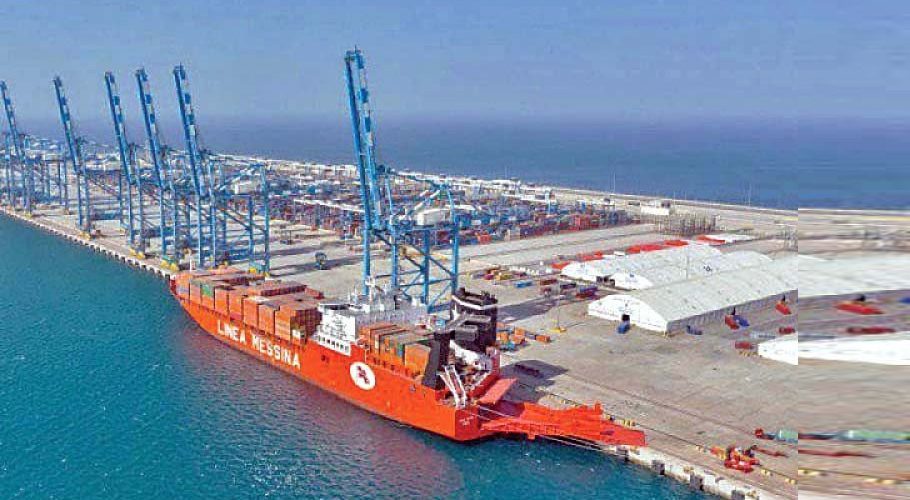The United Nations General Assembly passed a resolution against Israeli aggression in Gaza on humanitarian grounds. However, if the matter went to the Security Council and the resolution could be passed from there, Israel could be forced to comply with it in a real sense. Because of the opposition of the United States and the United Kingdom against the Israeli-Palestinian ceasefire in the Security Council, the resolution could not be passed, indicating the awakening of global consciousness and conscience.
In the General Assembly, 120 countries voted in favor of the resolution, 14 opposed it (with the United States at the forefront), while 45 countries did not participate in the voting process. This resulted in the rejection of the Security Council resolutions regarding peace in Gaza through a veto by the United States and the United Kingdom.
The global consciousness raised its voice against Israel’s persecution, which is commendable. However, the ongoing persecution in Gaza—marked by severe bombings, the demolition of buildings, and the destruction of hospitals, schools, and residential buildings—is an action the world condemns. The international community cannot shirk its duties by merely voicing concerns. In the General Assembly, France, a permanent member of the Security Council, also voted in favor of the resolution. The Security Council possesses the power to impose sanctions on Israel under Chapter 6 of the UN Charter.
Similarly, under Chapter 7 of the UN Charter, the Security Council has the authority to deploy its forces against Israel in Gaza, akin to the situation in East Timor, especially in Occupied Palestine. However, considering the stance of Security Council member countries, particularly the permanent members, such actions seem unlikely. Moreover, it is deeply concerning that Muslim countries have not convened a meeting of the heads of the OIC.
If the 57 member countries of the OIC mutually agree to boycott Israeli products and sever their relations with Israel, significant pressure can be exerted on the West, potentially bringing an end to the Israeli-Palestinian conflict. However, the personal interests of Muslim heads of state have hindered such actions for several decades. Nonetheless, there is substantial concern at the public level in Muslim countries, with demands in favor of Palestine evident through numerous city demonstrations.
In this context, a resolution presented in the General Assembly by some Muslim countries may be seen as a positive reaction from the West in a suffocating environment. However, as previously mentioned, according to Habib Jalib, this resolution status is no more than an expression of thought or speech.
سر منبر وہ خوابوں کے محل تعمیر کرتے ہیں
علاجِ غم نہیں کرتے، فقط تقریر کرتے ہیں
Renowned researcher Dr. Habibur Rahman talks about the decline of the Muslim nation, stating that in the last 200 years, the resources of Muslim countries were either spent on suppressing internal and external temptations or on the lavish lifestyle of Muslim kings and rulers. They remained at the service of their interests. These rulers also invested the remaining resources in unnecessary secret agencies to maintain their rule. They restricted their subjects from pursuing knowledge and education to freely rule over the masses of ignorant people despite their tyranny.
The scientific and technological capabilities of Muslim countries can be estimated from the fact that the population of 58 independent Islamic countries comprises 24 percent of the total world population (approximately 1.8 billion). Around 40 percent of this population is illiterate. The number of universities in all Islamic countries exceeds 600, including institutions like Punjab University Lahore (established in 1882), Indonesia University (founded in 1950, Jakarta), Tehran University (established in 1851), Malik Saud University (Riyadh, established in November 1957), and Al-Azhar University (Cairo, Egypt, established in 1970). Approximately 1,000 individuals obtain a Ph.D. from these universities annually. The collective workforce of these Islamic countries in the fields of science and technology is only about 8 million, which represents around 4% of the global population engaged in these fields. Over 100,000 scientific books and more than 200,000 scientific articles are published worldwide each year, while the annual number of science and research books and articles from Islamic countries does not exceed one thousand.
We need to educate our youth that our nation has been in decline for several decades. Occupied Palestine has been a victim of Israeli aggression for approximately 75 years. If we, as a nation, focus on science, technology, and research, in the next few decades, we will be empowered enough to raise our voices for our rights alongside other nations. Just as 14 countries openly opposed the Palestinians in the United Nations General Assembly, the Muslim nation will also be strong enough to openly oppose them and claim their rights.
In 1967, the United Nations instructed Israel to vacate the lands of Palestine that they had occupied; however, this directive remains unfulfilled. Instead, more occupations and settlements continue to occur, with Israel presently engaged in efforts to eliminate the existence of Palestinians.
According to statistics up to Saturday, October 28, at least 8,000 innocent Palestinians, primarily women and children, have been killed. In Gaza alone, 5,000 people lost their lives, with over 62 percent being women and children.
The number of individuals injured in Israel’s attacks has surpassed 15,000. Unfortunately, these wounded individuals lack access to hospital facilities for medical assistance due to Israeli attacks on hospitals. Gaza’s communication links with the outside world have been severed, and basic necessities such as water, electricity, and food supplies have been cut off. The oppressed Palestinians currently face a bleak situation, with no signs of hope.
The Muslim Ummah must raise its voice both nationally and internationally in support of their Palestinian brothers and sisters. This collective action is crucial in paving the way to free them from the atrocities imposed by Israel.



























